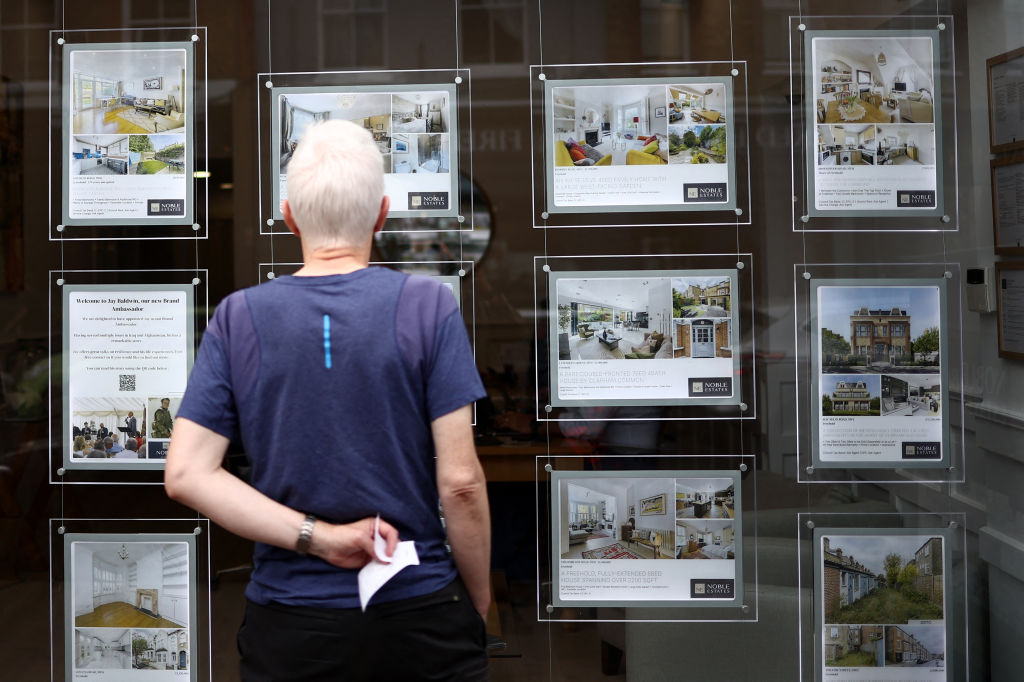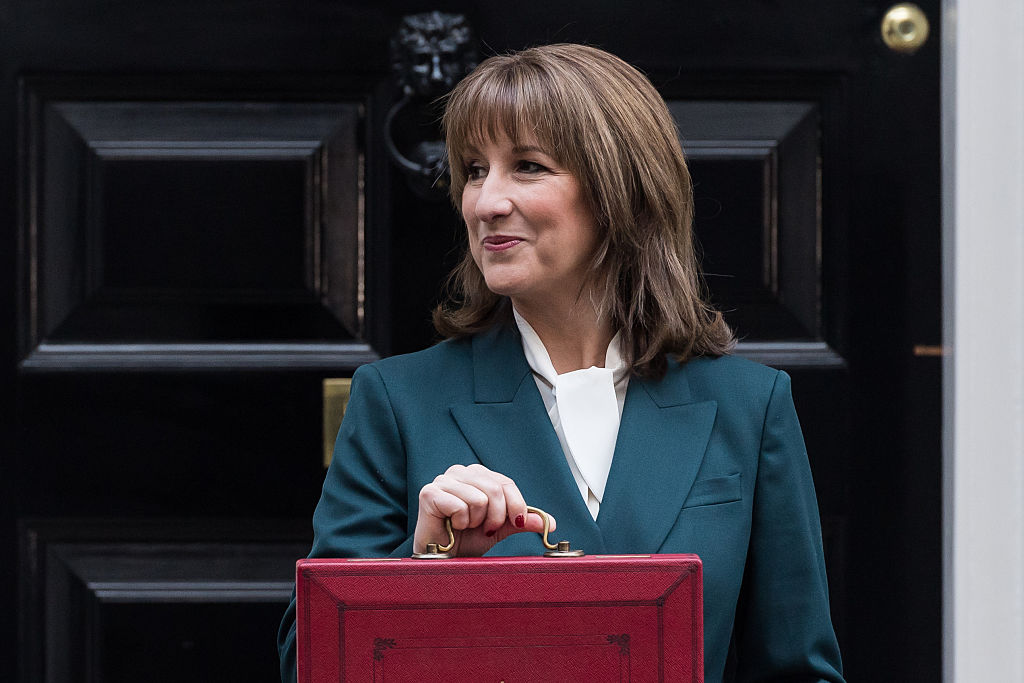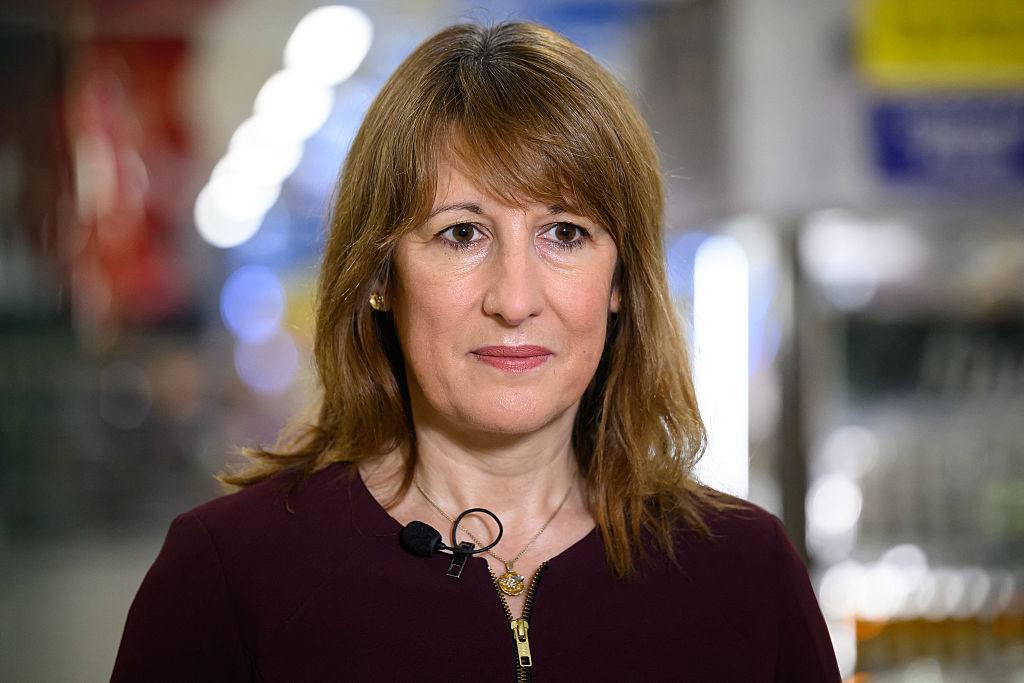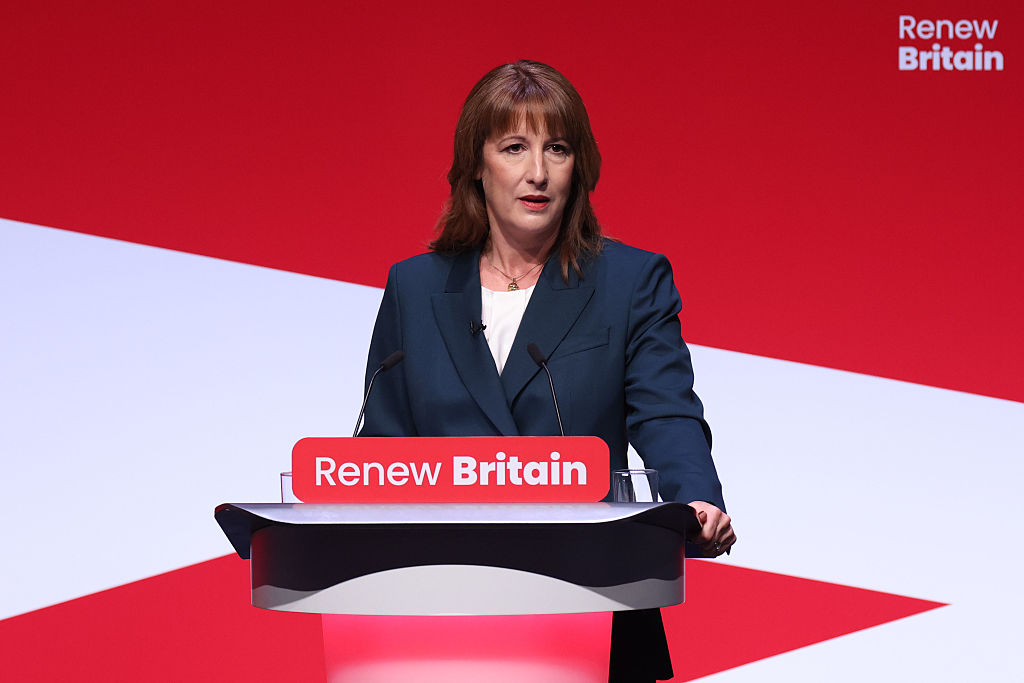Rightmove: Biggest November drop in UK asking prices in over a decade amid Budget uncertainty
Asking price reductions of homes already on the market are also at their highest level since February 2024


Get the latest financial news, insights and expert analysis from our award-winning MoneyWeek team, to help you understand what really matters when it comes to your finances.
You are now subscribed
Your newsletter sign-up was successful
Want to add more newsletters?

Twice daily
MoneyWeek
Get the latest financial news, insights and expert analysis from our award-winning MoneyWeek team, to help you understand what really matters when it comes to your finances.

Four times a week
Look After My Bills
Sign up to our free money-saving newsletter, filled with the latest news and expert advice to help you find the best tips and deals for managing your bills. Start saving today!
UK asking prices have experienced their biggest November drop in more than 10 years amid Budget jitters and a decade-high number of homes for sale.
Average new seller asking prices fell between October and November by 1.8% from £371,422 to £364,833, according to property website Rightmove.
The average reduction between the two same months over the last 10 years is 1.1%. This year's drop marks the biggest November fall since 2012.
MoneyWeek
Subscribe to MoneyWeek today and get your first six magazine issues absolutely FREE

Sign up to Money Morning
Don't miss the latest investment and personal finances news, market analysis, plus money-saving tips with our free twice-daily newsletter
Don't miss the latest investment and personal finances news, market analysis, plus money-saving tips with our free twice-daily newsletter
Rightmove said the high number of properties for sale on the market was putting downward pressure on prices while there were concerns over what could be announced in the Budget on 26 November.
A number of changes could be announced by the chancellor Rachel Reeves later this month with major ramifications for the housing market.
This includes a new tax on the sale of homes worth over £500,000, as well the removal of the capital gains tax exemption on primary residences valued at more than £1.5 million. A new “mansion tax” could also be levied on homes worth more than £2 million.
Both pre-Budget jitters and the excess of homes on sale were compounding the seasonal slowdown in prices usually seen before Christmas, according to Rightmove.
It said over a third of homes available for sale had had an asking price reduction between October and November, with the average price reduction worth 7%. Both these figures are the highest since February 2024.
Colleen Babcock, property expert at Rightmove, said many sellers were “keen to avoid standing out” by over-pricing, while the Budget landing later than usual was prompting would-be buyers to take a wait-and-see approach.
She added: “It appears that the usual lull we’d see around Christmas time has arrived early this year, and sellers who are keen to move are having to work especially hard to entice buyers with competitive pricing.
“This means that average new seller asking prices are now 0.5%, or £1,759, cheaper than a year ago.”
High-end housing market takes biggest hit
House prices across the premium market took the biggest hit, Rightmove said, with the number of sales agreed for homes priced over £2 million down by 13% compared to the same period last year.
Meanwhile, the number of new sellers coming to the market in this price bracket was down by 9%, a larger drop compared to homes at the lower-value end of the market.
Houses priced between £500,000 and £2 million, which could be impacted by rumoured stamp duty reform in England and capital gains tax changes, also suffered between October and November.
Sales agreed on properties within this price range were down by 8% year-on-year, higher than the typical average for this month (5%).
Homes priced under £500,000, which accounts for roughly 75% of the market, were more resilient, Rightmove said.
The number of sales agreed in this sector was down by only 4% year-on-year.
Rightmove said as well as concerns over the contents of the Budget, prospective home-movers had their eyes on interest rates, which, broadly, continue to fall.
The average two-year fixed mortgage rate was 4.91% as of 14 November, according to Moneyfactscompare.co.uk, down from 5.48% the same date a year ago.
However, some home buyers may be waiting until rates come down further.
The Bank of England (BoE) held rates at its last meeting on 6 November, stating it believes inflation has peaked at 3.8%. This could signal a cut is coming at its next meeting on 18 December, which may mean mortgage rates drop.
Babcock added: “If we can see some mortgage rate reductions over the next few weeks, supported by a December Bank Rate cut, we could start 2026 on a positive note with the end of the prolonged Budget hiatus lifting the gloomy atmosphere of recent weeks.”
Get the latest financial news, insights and expert analysis from our award-winning MoneyWeek team, to help you understand what really matters when it comes to your finances.

Sam has a background in personal finance writing, having spent more than three years working on the money desk at The Sun.
He has a particular interest and experience covering the housing market, savings and policy.
Sam believes in making personal finance subjects accessible to all, so people can make better decisions with their money.
He studied Hispanic Studies at the University of Nottingham, graduating in 2015.
Outside of work, Sam enjoys reading, cooking, travelling and taking part in the occasional park run!
-
 Should you buy an active ETF?
Should you buy an active ETF?ETFs are often mischaracterised as passive products, but they can be a convenient way to add active management to your portfolio
-
 Power up your pension before 5 April – easy ways to save before the tax year end
Power up your pension before 5 April – easy ways to save before the tax year endWith the end of the tax year looming, pension savers currently have a window to review and maximise what’s going into their retirement funds – we look at how
-
 Investing in forestry: a tax-efficient way to grow your wealth
Investing in forestry: a tax-efficient way to grow your wealthRecord sums are pouring into forestry funds. It makes sense to join the rush, says David Prosser
-
 'Expect more policy U-turns from Keir Starmer'
'Expect more policy U-turns from Keir Starmer'Opinion Keir Starmer’s government quickly changes its mind as soon as it runs into any opposition. It isn't hard to work out where the next U-turns will come from
-
 The consequences of the Autumn Budget – and what it means for the UK economy
The consequences of the Autumn Budget – and what it means for the UK economyOpinion A directionless and floundering government has ducked the hard choices at the Autumn Budget, says Simon Wilson
-
 Why UK stocks are set to boom
Why UK stocks are set to boomOpinion Despite Labour, there is scope for UK stocks to make more gains in the years ahead, says Max King
-
 Autumn Budget live: Rachel Reeves cuts cash ISA limit, introduces mansion tax and more
Autumn Budget live: Rachel Reeves cuts cash ISA limit, introduces mansion tax and moreLive updates Chancellor Rachel Reeves unveiled a slew of tax hikes and ISA reforms in her second Autumn Budget. We take a look at the latest updates and analysis
-
 Should ISA investors be forced to hold UK shares?
Should ISA investors be forced to hold UK shares?The UK government would like ISA investors to hold more UK stocks – but many of us are already overexposed
-
 Can Rachel Reeves save the City?
Can Rachel Reeves save the City?Opinion Chancellor Rachel Reeves is mulling a tax cut, which would be welcome – but it’s nowhere near enough, says Matthew Lynn
-
 Is Britain heading for a big debt crisis?
Is Britain heading for a big debt crisis?Opinion Things are not yet as bad as some reports have claimed. But they sure aren’t rosy either, says Julian Jessop